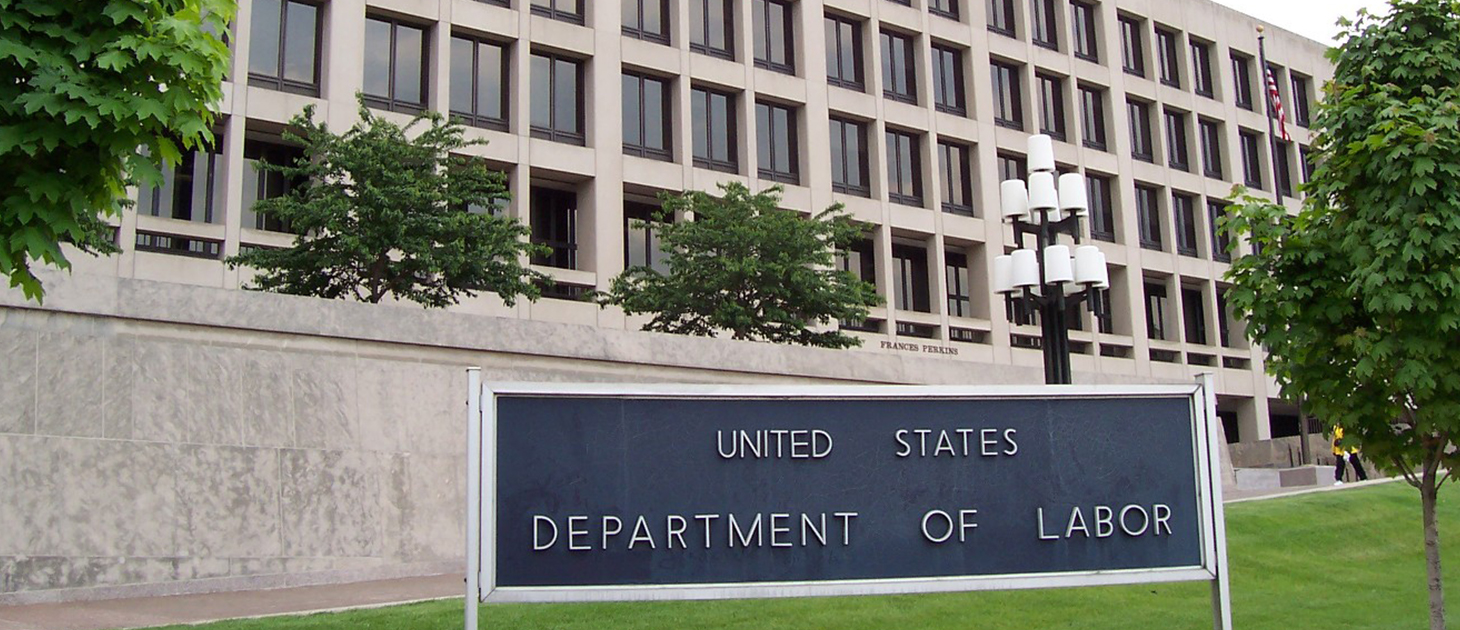No Summer Break for Labor Department
The DOL delivered a new rule to the White House, lawmakers proposed new regulations for franchisers, and leadership shakeups risk stalling new regulations.

With contributions from Maria Wolvin and Ben Marsico.
Congress may be gone until September, but work on the Capitol continues. This week, the Department of Labor delivered a new rule to the Trump White House that would expand overtime eligibility. Earlier this month, lawmakers proposed new regulations that would insulate franchisers from the activity of their local partners. Meanwhile, rulemaking may fall to the wayside as the DOL awaits new leadership.
Labor Department Delivers New Overtime Rule to White House
The Trump Administration received a new rule from labor officials that would increase the number of workers that can receive overtime pay.
According to a report from Bloomberg Law, the regulation was sent over to the White House for final review on Aug.12 and is expected to make about 1 million workers eligible to earn time-and-a-half pay after working more than 40 hours in a week.
The new rule raises the annual salary threshold below which workers automatically qualify to receive overtime to $35,000, up from $23,600. The Obama Administration attempted to raise the threshold in 2016 to $47,500, but the increase never took effect.
The Trump Labor Department has worked quickly to draft the rule, which was proposed in March, and to implement it before the 2020 elections, but Democrats and worker advocates are likely to challenge it in court, Bloomberg Law reported.
Lawmakers Propose Franchiser Liability Protections
A law recently proposed by a group of bipartisan policymakers would help clear up some of the ambiguity created by the joint-employer standard for franchisers.
On Aug. 1, Sen. Angus King, I-Maine, sponsored the Trademark Licensing Protection Act of 2019 along with co-sponsors James Lankford, R-Okla., John Cornyn, R-Texas, Kyrsten Sinema, D-Ariz., Joe Manchin, D-W.Va., Mike Braun, R-Ind., and Kevin Cramer, R-N.D.
The bill would amend existing trademark law to allow franchises to license their brands without requiring them to participate in collective bargaining or be held responsible for wage and labor violations committed by a franchisee.
Many franchisers are currently liable for infractions made by franchise owners because of an Obama-era expansion of the joint-employer standard, which states that organizations may share employees if they have “indirect” and “limited and routine” control of an employee’s terms and conditions of employment.
For franchises, being implicated in local disputes has caused major headaches. According to a study by the International Franchise Association, an advocacy group, franchise businesses have seen a 93% increase in lawsuits due to legal uncertainty since the expanded joint-employment standard was first implemented in 2015. These lawsuits have cost the industry $33.3 billion per year, according to the IFA.
The proposed legislation also comes at a time when the Department of Labor and the National Labor Relations Board are considering changes to the joint-employer standard. In September 2018, the NLRB announced a potential rule change for the standard, and the Department of Labor followed suit in April 2019.
Under the proposed standard, a company can only be considered a joint employer if it meets four criteria: it can hire or fire an employee, supervise and control an employee’s work schedule or employment conditions, determine an employee’s rate and method of pay, and maintain a worker’s employment records.
ACG has submitted letters to both the DOL and NLRB in support of revising the standard for determining joint-employer status.
Since the bill was introduced in the Senate, a companion bill was introduced in the House on Aug. 6 by Rep. Steve Chabot, R-Ohio. It was co-sponsored by Reps. Henry Cuellar, D-Texas, Doug Collins, R-Ga., Lou Correa, D-Calif., and Ben Cline, R-Va.
DOL Leadership Shakeup Could Leave Joint-Employer Rule Hanging
A change in leadership at the Department of Labor hasn’t made key workplace issues go away, but it’s uncertain if they’re moving ahead either.
Since the resignation of previous Labor Secretary Alexander Acosta on July 19, the DOL has been without permanent leadership and the status of the amendment to the joint-employer standard is up in the air.
Although President Donald Trump has nominated Eugene Scalia, attorney and son of the late Supreme Court Justice Antonin Scalia, to lead the department, the vetting process conducted by the Senate could mean that the DOL’s transition of power won’t happen soon.
Patrick Pizzella, the Labor Department’s previous deputy secretary, became acting secretary on July 20, but it is unclear to what extent the department has prioritized updates to the joint-employer rule.
However, a report from the Society of Human Resource Management, known as SHRM, said activity at the DOL, including work on the joint-employer standard, would continue.
“The joint-employer rule has been under consideration for some time,” Michael Lotito, an attorney with San Francisco-based law firm Littler, told SHRM. “I am sure the new leadership will want to review the status of the rule and ensure it is meeting whatever internal timelines there are for finalization.”
Are you an ACG member who enjoys reading the public policy roundup? Join our Public Policy Interest Group to receive even more in-depth coverage of federal policy activity impacting the middle market, as well as opportunities to help shape ACG’s advocacy efforts.

Benjamin Glick is ACG Global’s marketing and communications associate.


